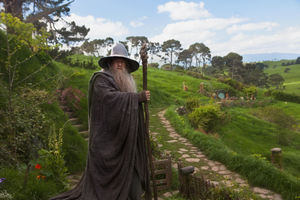Peter Rhodes on the grey pound, revisiting the 1950s and the two nations created by Covid
Read the latest column from Peter Rhodes.

National Express reports that coach tours booked by customers aged over 65 have soared by 185 per cent in a fortnight. Tui, the UK's biggest tour operator says half of its online bookers are now over-50s. This enthusiasm for holidays in 2021 is put down to “vaccine confidence” as the old 'uns realise this pandemic is survivable.
But there is another factor, one which has been barely mentioned during a contagion which has produced a non-stop diet of terrible news. The factor in question is loadsamoney.
In financial terms, we have become two nations. While millions of families have suffered job losses, hardship and despair, some Brits, through no fault of their own, have done very nicely, thanks, out of the lockdowns. Their state and company pensions have been pouring in to their bank accounts as usual but with holidays cancelled, eating out curtailed and driving forbidden, their outgoings have dropped. According to one Bank of England estimate, Britons have stashed away £100 billion of “excess savings” during the pandemic. And that's before counting the bequests in the wills of 80,000 Covid-19 victims who died before their time.
I suspect today's sudden rush for coach and other tours is not a sudden blip. It is the first sign of a pensioner-driven spending spree which, if all goes well, will transform the British economy later this year, saving companies that thought they were dying. Watch out for the Lazarus effect.
There's a great moment in the Ricky Gervais comedy, Extras, when Sir Ian McKellen explains his approach to acting. You see, he confides with great authority, he's not really a wizard at all. But when he plays Gandalf in Lord of the Rings, he pretends to be a wizard.
And that's the art of acting distilled. It's about playing people you are not. In recent years the scope for actors getting a huge range of roles has been vastly and vibrantly expanded by colour-blind and gender-neutral casting. In the theatre, and increasingly on television, no-one bats an eyelid if the King of France has three daughters instead of sons, as the script intended, or if Henry V of England is black.
So against this dynamically changing background what are we supposed to make of Russell T Davies, the Doctor Who writer, who states that gay characters should not be played by straight actors? He argues: “You wouldn't cast someone able-bodied and put them in a wheelchair, you wouldn't black someone up.” Davies defines gays playing gays as “authenticity” and says it is “leading us to joyous places.” But isn't it a backward step?
If straight actors are banned from gay roles, why should gay actors play straight roles? If contracts are awarded on the basis of an actor's sexuality, how many actors might even try to hide their nature? The “joyous places” Russell T Davies describes could look remarkably like the 1950s.




